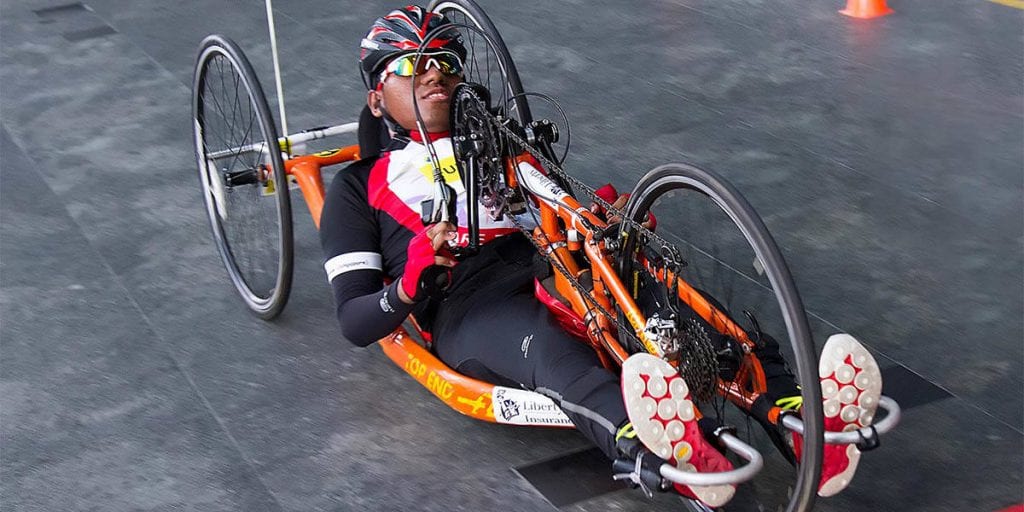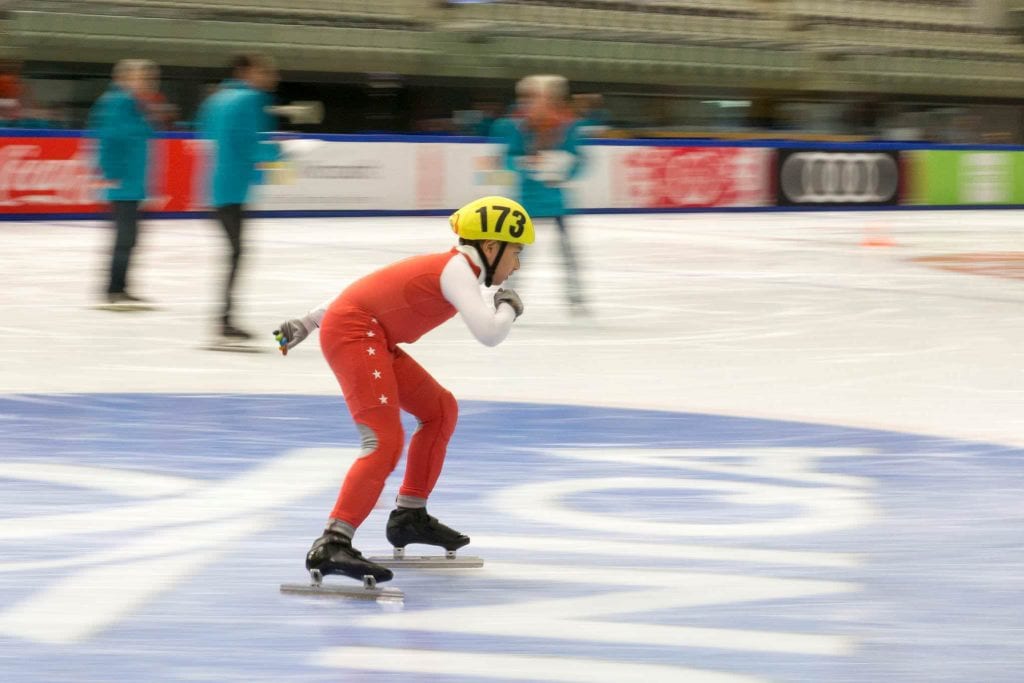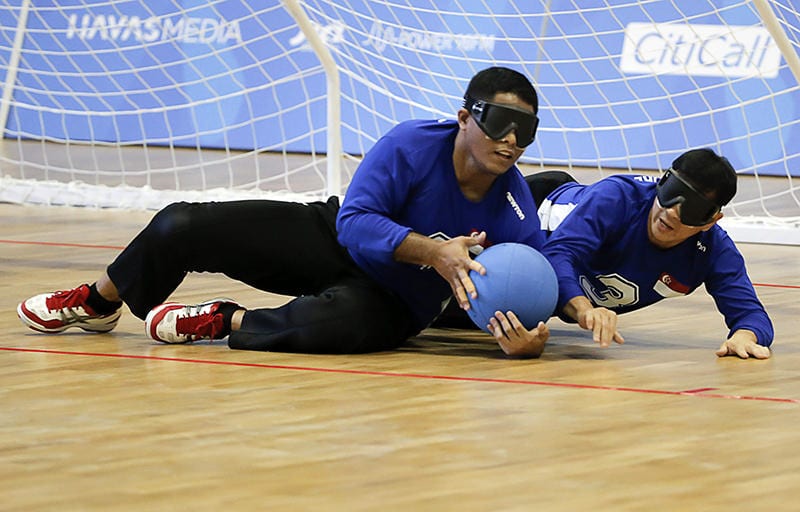The 9th ASEAN Para Games will be taking place in September. These eight disability sports offered in Singapore prove that disability is not a barrier in sports.
1. Para Badminton
For amputees, those with cerebral palsy, spinal cord injuries or short stature.

Para Badminton will be an official sport for the first time at the Tokyo 2020 Paralympic Games! Wheelchair Badminton follows the same rules as badminton, but with some modifications. We currently have five wheelchair badminton players, who are training hard to compete for a chance to represent Singapore in this sport at the upcoming ASEAN Para Games.Watch the video to see just how much power and agility this sport needs!
2. Powerlifting
For amputees, and those who have cerebral palsy, spinal cord injuries and of short stature

Photo credit: Singapore Disability Sports Council’s Facebook Page
Powerlifters lift a bar loaded with plates on both ends that can be up to three times their body weight. But powerlifting is more than just a show of strength, it’s also a test of endurance and discipline.
Three of our para-athletes recently competed at the 2017 World Para Powerlifting World Cup in Eger, Hungary.
3. Handcycling
For amputees, and those who have cerebral palsy and spinal cord injuries

Photo Credit: Club Rainbow’s Ride for Rainbow Facebook Page
Handcycling is one of the world’s fast growing disability sports. Instead of your legs, you use your arms to power human-powered land vehicles, either on a track or road. It’s great for strengthening the torso.
Jeremiah Liauw, 10, who was born with spina bifida and has limited use of his legs, is one of our youngest handcylists. In April, he hand-cycled 25km to raise funds for Club Rainbow at their annual Ride for Rainbows fundraiser.
4. Deaf Swimming
For the hearing impaired.

Photo credit: Deaf Sports Association
Most of us know about para-swimming, but have you heard of deaf swimming? Most competitors in deaf swimming are able-bodied and do not require modifications made for para-swimmers. Instead of waving a flag to signal the start of a race, strobe lights are often used to guide the swimmers. Don’t be fooled by the silent nature of swim meets – spectators may be silent, but the excitement can still be felt!
5. Equestrian (horse riding)
For amputees, and those who have cerebral palsy, muscular dystrophy, spinal cord injuries and of short stature

Photo credit: Buckay’s Instagram Page
Buckay is a therapy horse at Riding for the Disabled Association (Singapore), and spends her day doing more than just horsing around. Along with 18 friends, she works with people with all types of disabilities to bring them on walks and compete at equestrian competitions. Apart from helping to train their muscles, she can help to improve their mobility, self-confidence and even communication skills. With such a fulfilling career, you’ll never see her with a long face!
6. Speed Skating
For the Intellectually impaired

Photo credit: Special Olympics Facebook Page
Despite our tropical weather and lack of frozen lakes, our short track speed skating athletes do extraordinarily well in the Special Olympics World Winter Games. This year, they sped to victory and picked up three gold, four silver and three bronze medals at the Games in Austria.
Apart from being a cardio workout, speed skating also improves muscular strength, balance and coordination. Think sprinting, but on ice! More importantly, it offers the potential for social integration for athletes both on and off the ice.
7. Goalball
For the visually impaired

Goalball is a team sport where blind athletes in teams of three aim to throw a ball into their opponent’s goal. The balls have bells embedded in them, and players use the sound of the bells to judge the ball’s position and movement. This means that all games are played in complete silence to allow players to hear the ball.
All players must wear eyeshades to ensure that partially blind players compete on equal footing with those who are completely blind.
8. Recreational running
For the visually impaired, physically challenged and mildy intellectually disabled

Photo Credit: Runninghour’s Facebook PageWe all know that running is good for both the body and soul. Thanks to Runninghour, those with disabilities can also have a chance to enjoy the benefits of a long run, with the help of their volunteers who act as buddy runners. The group gets together to go for runs all over Singapore three times a week. They even participate in marathons! This weekend, over 300 visually, intellectually and physically-challenged runners will be running alongside participants at Runninghour 2017. Participants will have the chance to be blindfolded and experience what it is like to run with visual impairment. Registration for the run has closed, but if you’re inspired, sign up to be a volunteer with them!




















